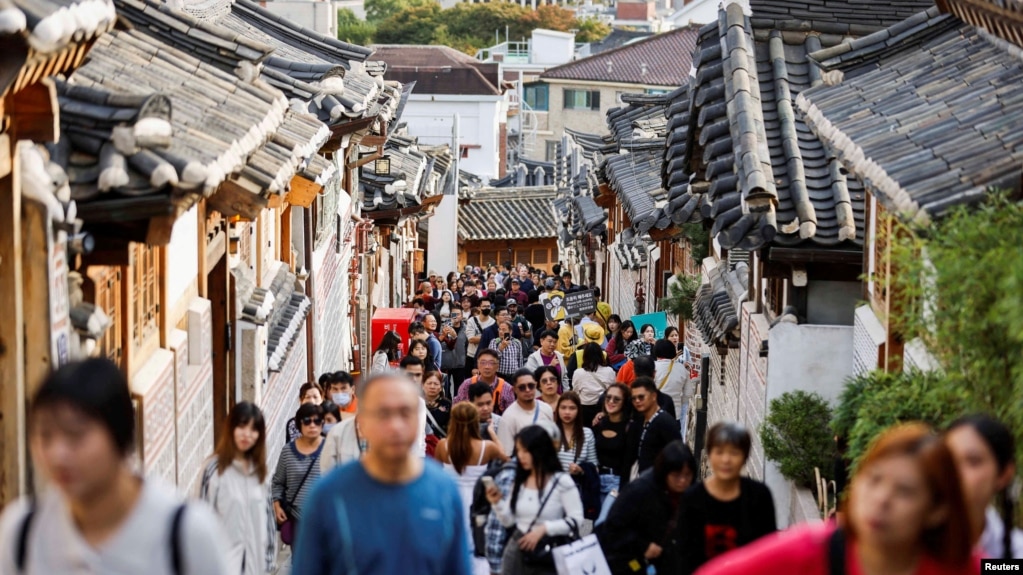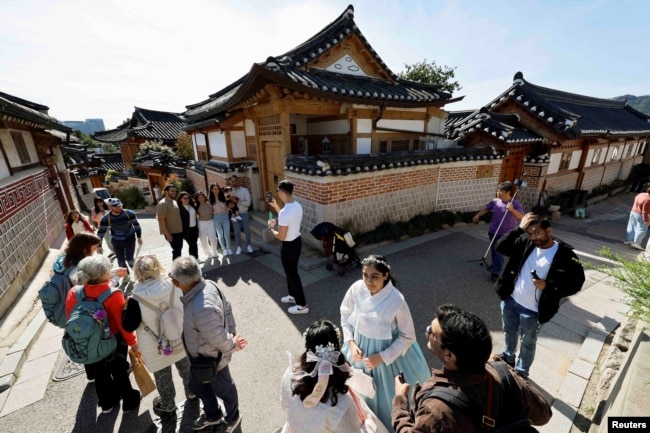AUDIO
Traditional Seoul Village Hopes Curfew Brings Back Normal Life

In South Korea’s capital of Seoul, Bukchon Hanok Village’s narrow winding alleyways date back hundreds of years to the Joseon Dynasty. The area has become a popular place to visit, especially after appearing in a television show about 10 years ago.
Foreign visitors and Koreans visit the neighborhood to see houses with wood columns, courtyards and tiled roofs.
The area attracted about 6 million visitors last year while the population of the area is around 6,100.
However, increasing numbers of visitors have become a problem for people who live there. They complain about noise, trash, bad behavior and invasion of privacy.
Some visitors have been caught on camera trying to enter private homes or looking inside without permission, creating conflict with locals.
Many local people have chosen to leave, leading to a 27.6 percent drop in the village's population over the past 10 years.
Village officials now want to set a curfew in the area. The curfew will limit visitors to certain areas of Bukchon from 5 p.m. to 10 a.m. local time. It will start as a trial in November and will be officially launched next March. Violators could pay fines of up to $72.
Chung Moon-hun is the head of Jongno district. Chung said the goal is to protect the rights of local people. Chung said the curfew can be changed if necessary to make it more effective. The area where curfew hours and fines will be in effect is about 34,000 square meters. That is about the size of five soccer fields.

Kwon Young-doo owns the private Asian Cultural Art Museum in Bukchon Hanok Village. Kwon is concerned about the curfew policy aimed at preventing visitors from overrunning the area.
"Who would want to visit?" asked Kwon who moved into the historic area 18 years ago. "They'll leave with a bad impression of South Korea."
Others do not believe the policy will be effective. They note measures such as exemptions for visitors staying overnight in traditional houses called hanok. Many of these hanok are now owned by businesses after officials loosened restrictions on overnight stays.
"People come for just a day to enjoy themselves, and the noise from parties is extremely loud," said Kim Eun-mee, who lives next to a hanok. Clearing trash in front of her home has become a task she has to perform several times a day.
"It's often difficult to maintain a normal daily routine due to disturbances.” She said people often make noise moving their suitcases around even in the early hours, which wakes her up.
Lee Dong-woo is head of the website BUTLER.LEE which is used to rent the hanoks. Lee said the business grew when owners who found it difficult to modernize or maintain old houses turned them over to businesses.
"These requests are driving the expansion, not because we are actively evicting current residents to operate hanok stays," Lee said. Lee oversees 17 hanok stays in Bukchon.
Visitors are divided over the curfew. Some agree locals’ quality of life is important. Others are unhappy at the idea of getting fined for simply walking down a public street.
There are also questions about how the rules will be enforced; how to tell visitors from locals; how to make foreigners pay a fine, and how to deal with the language barrier.
_______________________________________________
Words in This Story
dynasty –n. a group of associated rulers who govern a country for a long time
column –n. a circular or square support for a building
courtyard –n. an open area surrounded by buildings
roof –n. the top of a house that protects the inside from rain and sun
trash –n. waste and unwanted materials
trial –n. a test
exemption –n. freedom from having to observe a rule that everyone else must follow
routine –n. something that is done regularly as a normal part of a day or week
disturbance –n. a happening that is loud, surprising or that causes people to change what they would normally do
evict –v. to remove someone from where they normally stay or live
https://learningenglish.voanews.com/a/traditional-seoul-village-hopes-curfew-bring-back-normal-life/7843907.html